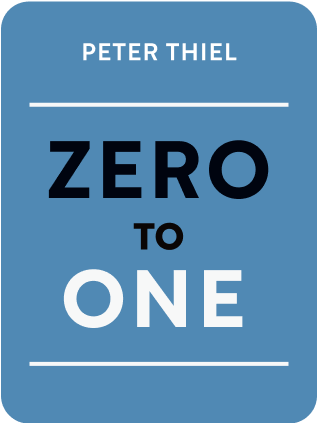

This article is an excerpt from the Shortform summary of "Zero To One" by Peter Thiel. Shortform has the world's best summaries of books you should be reading.
Like this article? Sign up for a free trial here .
What should a startup’s culture be like if you want to succeed? How do you build unity? What factors make people feel more connected?
At PayPal, Peter Thiel fostered a team that was so close that people called them the “PayPal Mafia.” In Zero to One, Thiel shares his wisdom on how to cultivate a healthy and effective startup culture, drawing from the lessons he learned at PayPal.
Keep reading to see how Thiel’s insights can benefit your startup.
Startup Culture
From the start, whether you realize it or not, you are shaping your startup culture. Each decision matters. As you build your talent pool, Thiel advises hiring only full-time, on-site employees. He acknowledges that part-time employees, remote employees, and consultants paid as contractors are cheaper to hire, and that startups must generally operate on a tight budget. However, in his experience, the less intimately people are connected to the company, the more they tend to focus on looking good in the short term, rather than building the company’s future. As such, even if you have to hire consultants to get the necessary talent, bring them on as salaried employees rather than contractors. And don’t even bother with part-time help or remote hires.
Thiel says your employees need to be unified by a zeal for your company’s unique mission. By way of illustration, he says there’s a fine line between a successful startup and a cult: Usually, cults are built on an idea or ideology that’s wrong, but that their members zealously support. Successful startups are built on an idea that’s true, and that their employees are zealous about, but that the rest of the world thinks is wrong, because the truth of the idea is not yet widely known.
Thus, as you hire additional employees, Thiel emphasizes the importance of articulating your company’s mission to them. He advises hiring people who find your company’s unique mission compelling, and want to work with the kind of people who are already on your team—not people who are just looking for money or special perks.
Thiel advocates building the unity of your team by minimizing the factors that differentiate the members of the team from each other. For example, he recommends issuing uniforms to your employees, although he remarks that for most startups, a “uniform” would just be a T-shirt with the company logo on it. He also suggests hiring people who share the same interests, even on things outside the scope of work. The less your people differ from each other relative to how much they differ from the rest of the world, the stronger your team identity becomes.
However, he adds one caveat: As you minimize factors that differentiate your people from each other, do not give them the same roles and responsibilities in the company. Returning to the subject of company structure, Thiel asserts that every employee in your organization needs to have a unique and clearly defined role. Overlapping roles and responsibilities lead to competition between employees, which, in turn, leads to inefficiencies that a startup simply cannot afford.
The Pitfalls of Professionalism
Thiel observes that some companies promote an atmosphere of “professionalism,” where you keep your work separate from the rest of your life. You limit your interactions with your coworkers to what’s necessary to get your work done. In theory, this produces a more cohesive workforce: All employees are unified by the company’s mission and they keep their personal lives out of their work so that differences in their beliefs, politics, or interests don’t cause disunity.
But Thiel sees this as a mistake. Instead, he argues that work should be a place to build lasting relationships. He recounts how the team he built at PayPal became so close that, even after they went their separate ways, people referred to them as the “PayPal Mafia.”

———End of Preview———
Like what you just read? Read the rest of the world's best summary of Peter Thiel's "Zero To One" at Shortform .
Here's what you'll find in our full Zero To One summary :
- Why some companies genuinely move the world forward when most don't
- How to build a company that becomes a monopoly (and why monopolies aren't bad)
- Silicon Valley secrets to selling products and building rockstar teams






